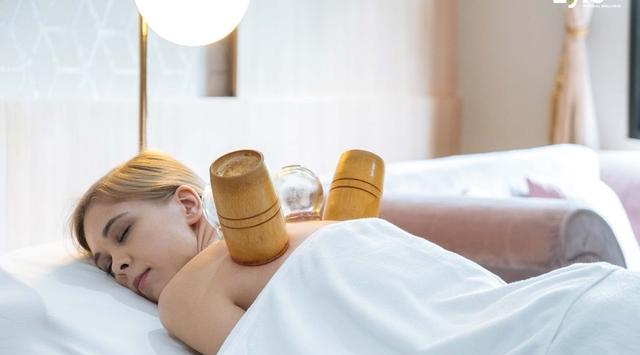Introduction
Hormone Replacement Therapy (HRT) and Bioidentical Hormone Replacement Therapy (BHRT) are pivotal approaches in managing hormone imbalances that can significantly impact a person’s overall health. Hormones play an essential role in regulating various bodily functions, and maintaining their balance is crucial for optimal well-being. As individuals age, hormone levels can fluctuate, leading to various symptoms and health concerns. This article explores the distinctions between HRT and BHRT, their respective benefits, and the factors to consider when choosing between them.
Differences between HRT and BHRT
Definition and Overview of HRT
Hormone Replacement Therapy (HRT) involves the administration of synthetic hormones to replace the natural hormones that the body no longer produces in sufficient quantities. HRT is commonly used to treat symptoms associated with menopause in women, such as hot flashes, night sweats, and vaginal dryness. It can also be prescribed for men with low testosterone levels. HRT typically involves a combination of estrogen and progesterone for women who have not undergone a hysterectomy, as progesterone helps protect against the risks of hormone therapy, such as endometrial cancer.
Definition and Overview of BHRT
Bioidentical Hormone Replacement Therapy (BHRT) refers to the use of hormones that are chemically identical to those produced by the human body. These hormones are derived from plant sources and are modified to match the molecular structure of endogenous hormones. BHRT is often touted as a more natural and personalized approach to hormone therapy, as it can be tailored to the individual’s specific hormonal needs based on comprehensive testing and monitoring.
How BHRT is Considered More Natural and Personalized Compared to HRT
BHRT is considered more natural because the hormones used are identical on a molecular level to the body’s own hormones. This is in contrast to the synthetic hormones used in conventional HRT, which may have slight structural differences. The personalization aspect of BHRT involves customizing the therapy based on detailed hormonal evaluations, allowing for a treatment plan that is specifically tailored to the individual’s unique hormonal profile.
Benefits of HRT and BHRT
Common Benefits of Hormone Replacement Therapy
Both HRT and BHRT aim to alleviate the symptoms associated with hormone deficiencies and imbalances. Common benefits of hormone replacement therapy include:
- Relief from menopausal symptoms such as hot flashes, night sweats, and vaginal dryness.
- Improved mood and reduction in depression and anxiety associated with hormonal changes.
- Enhanced libido and sexual function.
- Increased energy levels and reduction in fatigue.
- Prevention of bone loss and reduction in the risk of osteoporosis and fractures.
Specific Benefits of BHRT
The specific benefits of BHRT include:
- More precise matching to the individual’s hormonal needs, potentially leading to fewer side effects and better symptom management.
- The ability to fine-tune hormone levels more accurately through ongoing monitoring and adjustments.
- Perception of being more natural and safer, although this view is subject to ongoing research and debate.
How HRT and BHRT Can Improve Symptoms Related to Menopause, Low Testosterone, and Other Hormone Imbalances
Both HRT and BHRT can be effective treatments for menopause symptoms, low testosterone in men, and other hormone-related issues. They can help manage common symptoms of menopause such as hot flashes, mood swings, and sleep disturbances. For men with low testosterone, these therapies can improve energy levels, mood, and sexual function. The benefits of hormone replacement therapy, including estrogen replacement and combination therapy, can significantly enhance the quality of life for individuals experiencing hormone deficiencies.
How to Choose Between HRT and BHRT
Factors to Consider When Deciding Between HRT and BHRT
When deciding between HRT and BHRT, several factors need to be considered:
- Personal Health History: A comprehensive review of personal and family medical history can help determine the most suitable type of hormone therapy.
- Symptom Severity: The severity of symptoms and how they impact daily life can influence the choice of therapy.
- Preferences for Natural vs. Synthetic: Some individuals may prefer bioidentical hormones due to their natural derivation and structural similarity to endogenous hormones.
- Health Goals: Clarifying your specific health goals, whether it's managing menopausal symptoms, improving mood, or enhancing overall well-being, can guide the choice between HRT and BHRT.
- Lifestyle and Convenience: Considerations such as the form of hormone delivery (pills, patches, creams, etc.) and how it fits into your lifestyle may also influence your decision.
- Doctor's Recommendation: Consulting with a healthcare provider who specializes in hormone therapy can provide personalized advice based on your unique needs and health profile.
- Current Hormone Levels vs. Doctor's Recommendation: Testing your current hormone levels is crucial. This baseline measurement, combined with your doctor’s recommendation, will guide the appropriate therapy and dosage for your specific condition. A personalized approach ensures that the therapy aligns with your body's needs and your health profile.
- Consulting with Lyfe Medical Wellness, where our healthcare providers specialize in hormone therapy, can provide personalized advice based on your unique needs and health profile. Our expertise can help navigate the complexities of hormone therapy options.
Personalized Approach to Hormone Replacement Therapy
A personalized approach to hormone replacement therapy involves:
- Detailed hormonal evaluations through blood, saliva, or urine tests.
- Customized dosing based on the individual’s specific hormonal needs.
- Regular monitoring and adjustments to ensure optimal hormone levels and minimize side effects.
V. Conclusion
Hormone Replacement Therapy (HRT) and Bioidentical Hormone Replacement Therapy (BHRT) offer valuable options for managing hormone imbalances and improving quality of life. Understanding the differences between HRT and BHRT, along with their respective benefits and considerations, is essential for making an informed decision. By considering factors such as personal health history and symptom severity, individuals can choose the most appropriate therapy for their needs. Consulting with a qualified healthcare provider ensures a personalized and safe approach to hormone replacement therapy, ultimately promoting better health and well-being.
In conclusion, while hormone replacement therapy can offer significant benefits, it is essential to discuss the options with a healthcare provider to make an informed decision. The benefits of hormone therapy, including relief from menopausal symptoms and improved quality of life, often outweigh the considerations for many individuals. However, each person’s situation is unique, and therapy should be tailored to their specific needs and health profile.
For those considering hormone replacement therapy, Lyfe Medical Wellness offers comprehensive consultations and personalized treatment plans to help you achieve optimal health and well-being. Our experienced healthcare providers are dedicated to guiding you through the process, ensuring you receive the most suitable and effective therapy.
Rawai Branch:
58/147 Moo 6 T. Rawai, Muang, Phuket, Thailand, 83130
+66-94-926-3269
Laguna Phuket Branch:
29/99 Moo4, Cherngtalay, Thalang, Phuket 83110
+66-62-462-3969
Email: info@lyfemedical.com




